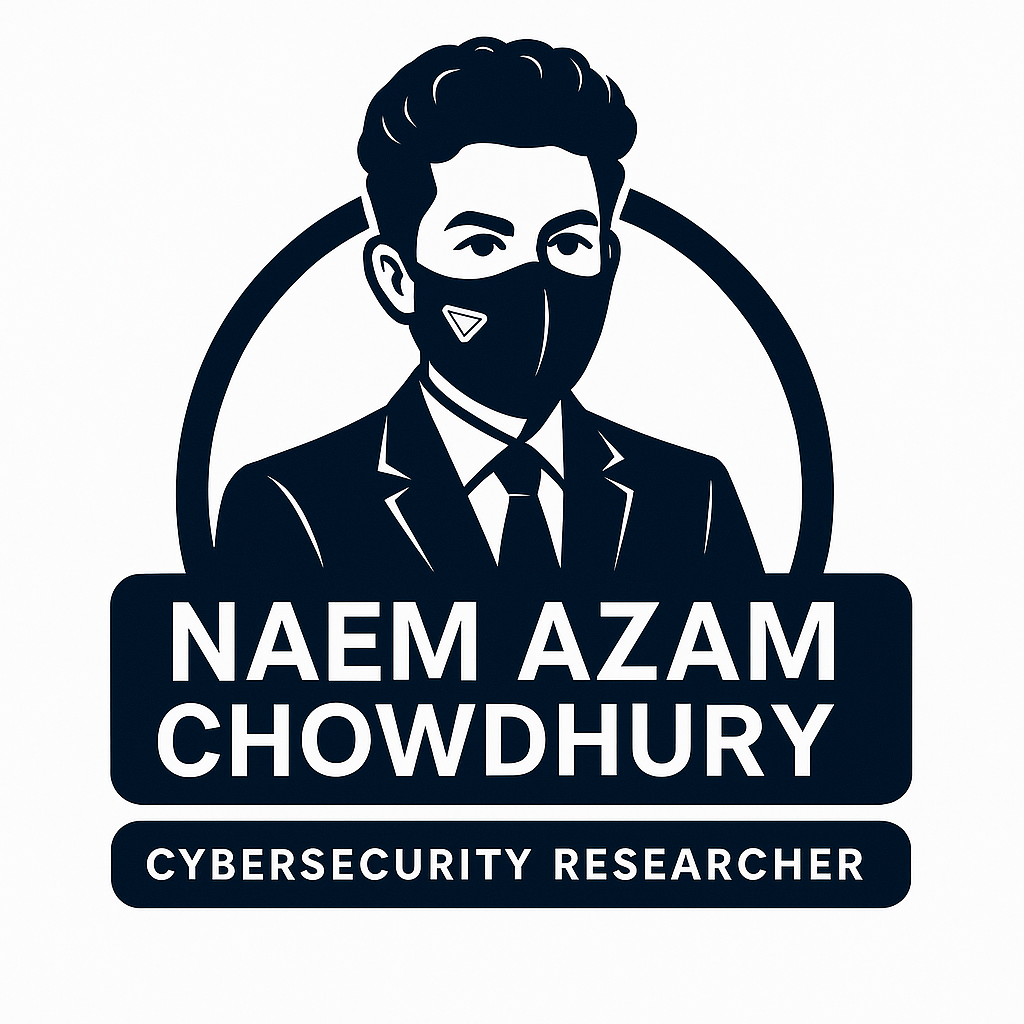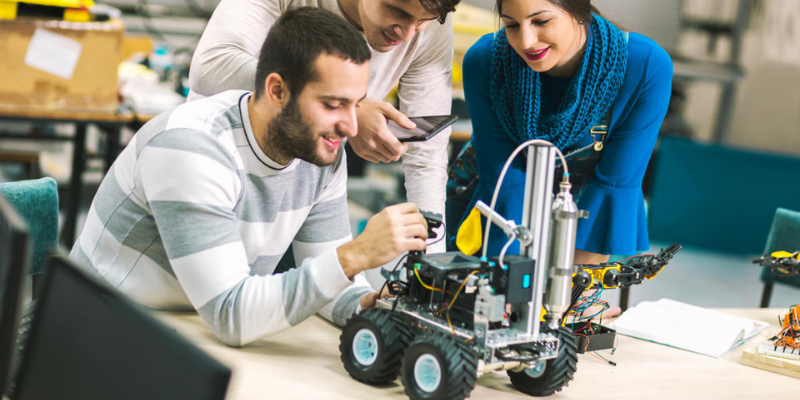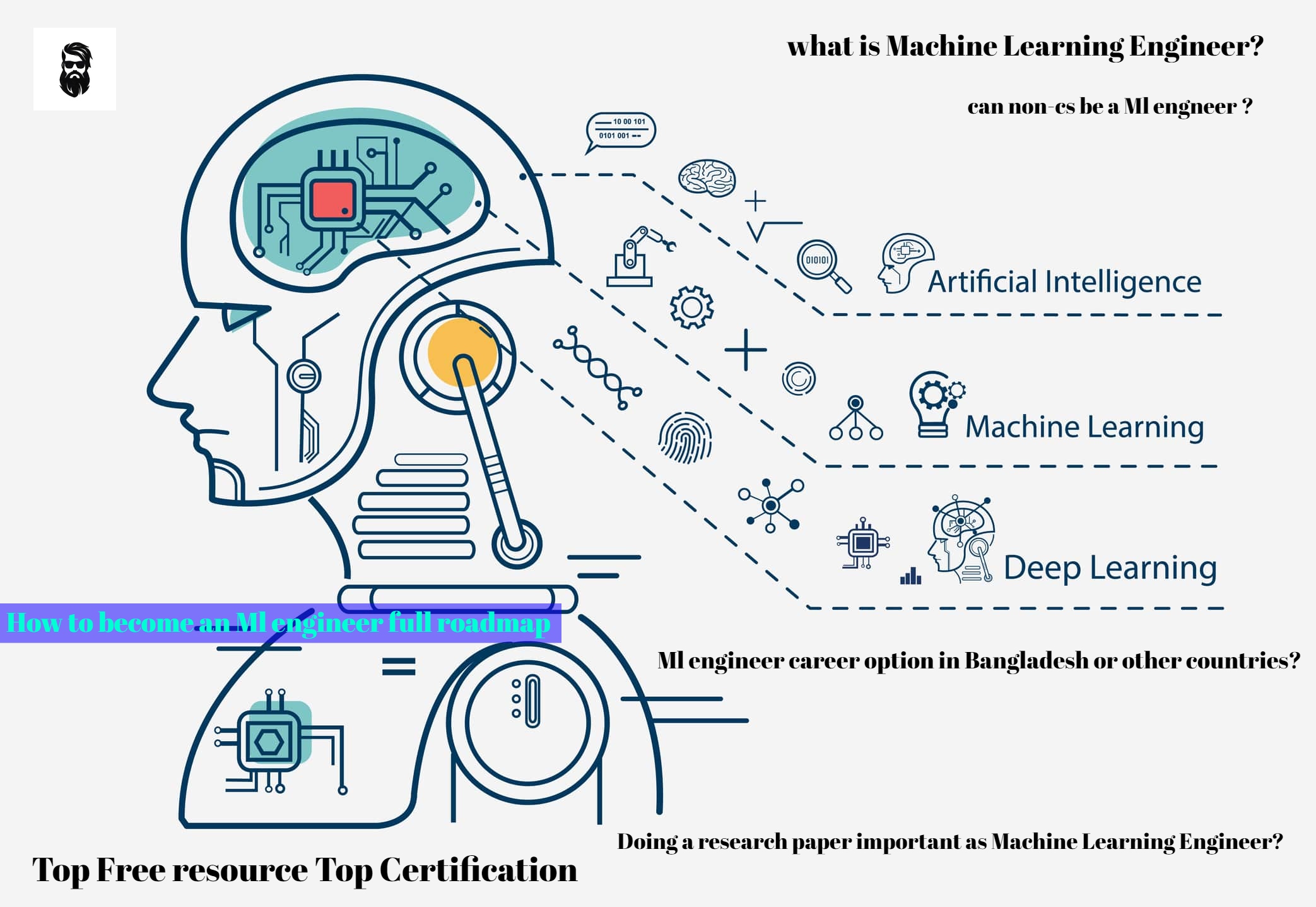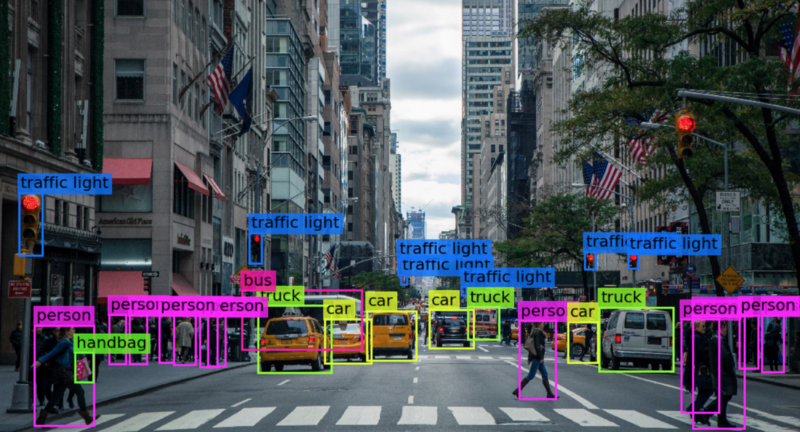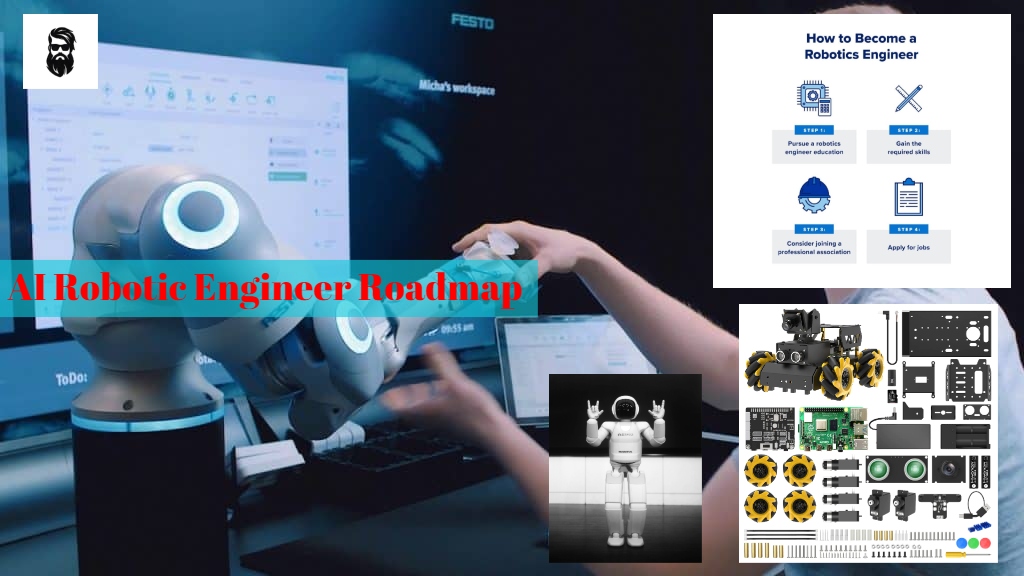How to become Internet of Things (IoT) Engineer
An Internet of Things (IoT) Engineer is a professional responsible for designing, implementing, and maintaining systems and devices connected to the Internet of Things. This involves working with hardware, software, and networking components to create and manage IoT solutions for various applications such as home automation, industrial control systems, and smart cities. An IoT engineer is also responsible for ensuring the security, reliability, and scalability of these systems.
can a non-degree become an Internet of Things (IoT) Engineer?
es, it's possible to become an Internet of Things (IoT) Engineer without a degree, but it can be challenging. The most important thing is to gain the necessary skills and knowledge in electronics, programming, networking, and cloud computing, which can be achieved through self-learning, online courses, or boot camps.
There are many online resources available for learning IoT-related skills, such as tutorials, courses, and open-source projects. It's important to have a good understanding of electronics and programming concepts and be familiar with popular programming languages such as C, C++, Python, and JavaScript.
It's also beneficial to gain practical experience by working on real-world IoT projects, either as a freelancer or through internships, which can help build a portfolio and demonstrate your skills to potential employers.
However, having a degree in a related field such as computer science or electrical engineering can make it easier to get a job as an IoT engineer, especially in larger companies or more complex projects, where a higher level of expertise may be required.
is the Internet of Things (IoT) Engineer a good career option?
Yes, being an Internet of Things (IoT) Engineer can be a good career option. With the growing adoption of IoT in various industries, there is a high demand for skilled professionals who can design, develop and manage IoT solutions. As an IoT engineer, you can work on innovative projects that involve cutting-edge technologies and work on developing products that can transform industries. The job also offers good growth opportunities as the industry is still evolving, with new applications and technologies emerging all the time. However, it requires a good understanding of multiple domains such as electronics, software, and networking.
what we have to learn to become a Internet of Things (IoT) Engineer:
To become an Internet of Things (IoT) Engineer, you would typically need to have a combination of skills and knowledge in several areas, including:
- Electronics and embedded systems: Knowledge of electronics, sensors, microcontrollers, and programming for devices.
- Networking and communication: Understanding of wireless communication protocols, networking, and security.
- Cloud computing: Familiarity with cloud computing platforms and services, including data storage, processing, and analysis.
- Data analytics: Ability to work with large volumes of data, analyze data, and extract insights from it.
- Programming: Knowledge of programming languages such as C, C++, Java, Python, and JavaScript.
- Project management: Ability to manage projects, work collaboratively in teams, and communicate effectively with stakeholders.
You may also need to have a degree in computer science, electrical engineering, or a related field, or relevant work experience in the field. It's also important to keep up-to-date with the latest developments and emerging technologies in the IoT industry.
step by step guide to becoming a Professional Internet of Things (IoT) Engineer:
Here is a step-by-step guide to becoming a professional Internet of Things (IoT) Engineer:
- Gain a strong foundation in electronics: Learn the fundamentals of electronics, including basic circuits, components, and microcontrollers. This can be achieved through online courses or tutorials.
- Learn programming: Gain proficiency in at least one programming language, such as C, C++, Java, Python, or JavaScript. This can be done through online courses or books.
- Understand networking and communication protocols: Learn about wireless communication protocols, networking, and security.
- Study cloud computing: Learn about cloud computing platforms and services, including data storage, processing, and analysis.
- Develop IoT applications: Work on real-world IoT projects, such as home automation or smart cities, to gain practical experience and develop your skills.
- Specialize in a particular area: Choose a specialization within IoT, such as industrial IoT or healthcare IoT, and gain expertise in that area.
- Get certified: Obtain relevant certifications in IoT technologies, such as AWS IoT, Cisco IoT, or Microsoft Azure IoT.
- Build a portfolio: Create a portfolio of your IoT projects and work to demonstrate your skills to potential employers.
- Gain practical experience: Look for internships or freelance opportunities to gain practical experience and work on real-world projects.
- Keep learning: Stay up-to-date with the latest developments and emerging technologies in the IoT industry to stay relevant and competitive.
certificates for Internet of Things (IoT) Engineer:
Here are some certifications for Internet of Things (IoT) Engineers that you may consider:
- AWS Certified IoT Specialty: This certification validates your expertise in designing and deploying IoT systems using AWS services.
- Cisco Certified Network Associate Industrial (CCNA Industrial): This certification demonstrates your knowledge of networking technologies and IoT applications in an industrial setting.
- CompTIA A+ Certification: This certification validates your skills and knowledge in core IT and IoT technologies, including hardware, networking, and security.
- Microsoft Certified: Azure IoT Developer Specialty: This certification validates your skills in developing and deploying Azure IoT solutions.
- IoT Professional Certification: This certification is offered by the IoT Institute and validates your knowledge and skills in IoT technologies and applications.
- Global IoT Security Certification: This certification offered by the IoT Security Foundation (IoTSF) validates your knowledge of IoT security best practices.
- IoT Certification from the Institute of Electrical and Electronics Engineers (IEEE): This certification program offers three levels of certification for IoT professionals, including entry-level, advanced, and expert levels.
These certifications can help you validate your skills and knowledge, demonstrate your expertise to potential employers, and improve your career prospects as an IoT Engineer.
Free resources to become an Internet of Things (IoT) Engineer:
There are many free resources available to help you become an Internet of Things (IoT) Engineer. Here are some examples:
- IoT tutorials and courses: There are many free tutorials and courses available online, including on websites like Coursera, edX, and Udemy. These courses cover a wide range of topics, from the basics of IoT to more advanced topics like machine learning and cloud computing.
- Online communities and forums: Joining online communities and forums related to IoT can help you learn from others and get advice on specific issues. Some popular communities include the IoT Community, the IoT Forum, and the IoT Council.
- Open-source projects: Contributing to open-source IoT projects can be a great way to gain practical experience and learn from others. Some popular open-source IoT projects include Arduino, Raspberry Pi, and ESP32.
- Documentation and guides: Many IoT hardware and software vendors provide free documentation and guides on their products, which can be a great resource for learning about specific technologies and how to use them.
- YouTube and video tutorials: There are many free video tutorials available on YouTube, covering a wide range of IoT topics. Some popular channels include The IoT Show, IoT Explained, and IoT Academy.
- Hackathons and competitions: Participating in hackathons and competitions related to IoT can be a great way to gain practical experience and build your skills. Many of these events are free to enter and offer prizes for winning submissions.
By leveraging these free resources, you can gain the knowledge and skills needed to become an IoT Engineer, without having to invest a lot of money into expensive courses or training programs.
